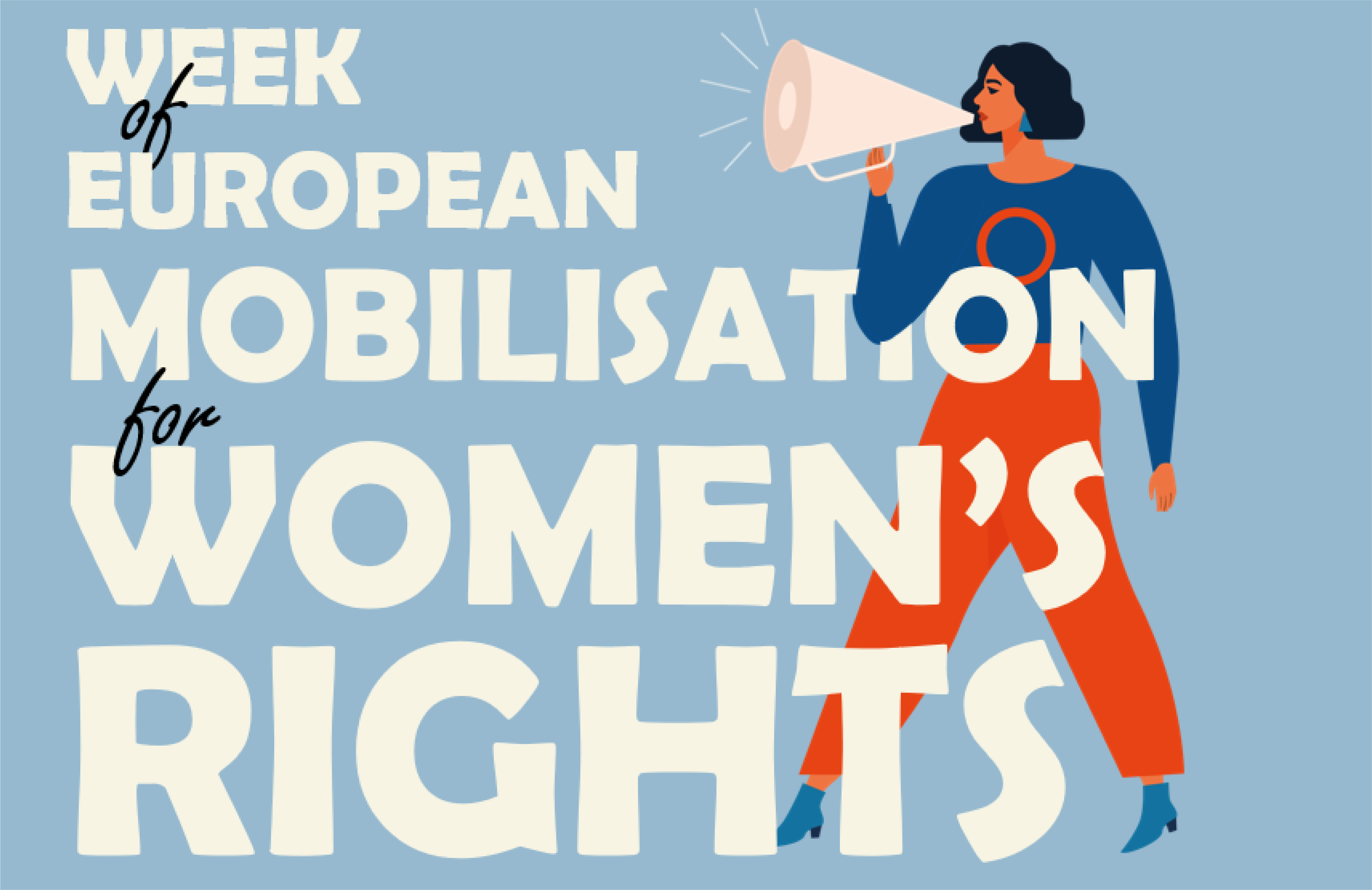Interview of Sophie Pouget for Focus 2030 on the occasion of March 8, International Women’s Rights Day
Since 2006, the RAJA-Danièle Marcovici Foundation has been working in favor of women and girls in France and around the world. Sophie Pouget, the Foundation's managing director, answered questions from Focus 2030.
20 March 2024
Focus 2030: The RAJA Danièle Marcovici Foundation is behind a new initiative, the creation of the “Coalition for Feminist Philanthropy (CPF),” supported by a group of donors to address the underfunding of gender equality by philanthropy. The goals of this coalition, of which Focus 2030 is a part, are to promote gender equality within the nonprofit sector, mobilize more resources, and ultimately increase the impact and influence of feminist movements. Can you tell us more about the goals of this coalition and the dynamics at play?
Sophie Pouget: To date, gender equality is underfunded both by public authorities and French philanthropy, even though it is a growth factor for society.
Faced with this observation, the Coalition for Feminist Philanthropy pursues three objectives. Firstly, the coalition works to promote gender equality and women’s rights by giving greater visibility to these issues within French philanthropy, notably through the sharing of knowledge and expertise among feminist donors. Secondly, the coalition aims to fully mobilize financial resources in support of equality by improving and coordinating private funding for women’s rights. Finally, it aims to increase impact by pooling expertise and coordinating joint actions. The coalition carries all this with a strong conviction: it is through alliances and collective actions that genuine transformative action is possible!
To concretely illustrate matters, one of the coalition’s actions involves establishing a map of private funding committed to gender equality and women’s rights, in order to inform and encourage donors who do not address these issues to do so. The coalition is thus initiating a study to assess the situation in France regarding the place that gender equality and women’s rights occupy in the financing strategy of private funders. The aim is to identify French funds and foundations that engage with our topics, their characteristics, and the proportion of their budget devoted to gender equality, both in their actions in France and internationally.
If I were to summarize the primary ambition of this new initiative, I would say it aims to broaden and promote different and complementary areas of action in order to have a 360-degree view of feminist causes in all their diversity.
Effecting significant changes for women and girls worldwide is now a necessity, and for this, a collective approach, in coalition, is indispensable.
Focus 2030: According to your preliminary estimates, who funds gender equality in France? What are the main supported areas? What are the preferred modes of intervention, for example, between on-the-ground activities, research, and advocacy, national vs. international…?
Focus 2030 : Selon vos estimations préliminaires, qui finance l’égalité de genre en France ? Quels sont les principaux domaines soutenus ? Quel sont les modes d’intervention privilégiés, par exemple entre activités de terrain, recherche et plaidoyer, national vs international… ?
Sophie Pouget: Primarily, it is the public institutions that finance gender equality in France and worldwide. It’s important to note, in this regard, the recent announcement of budget cuts, including the cancellation of commitments totaling 7 million euros for the Ministry of Equality and 742 million euros for official development assistance (Decree 2024-124 of February 21, 2024). Regarding international funding, it’s already known that only 0.55% of international aid targeted women’s rights advocacy organizations in 2021. The downward revision of these budgets is very concerning.
There are also private funders, among whom are members of the Coalition for Feminist Philanthropy. This coalition includes the BNP Paribas Foundation, the CHANEL Foundation, the Women’s Foundation, the Foundation of France, the Kering Foundation, the Médecins du Monde Foundation, the RAJA-Danièle Marcovici Foundation, the Foundation for Endometriosis Research, the L’Oréal Foundation for Women, the Fund for Women in the Mediterranean, the Mirova Foundation, and of course, the association Focus 2030.
Most of these funders act by co-financing on-the-ground actions deployed by civil society organizations, by leading or supporting advocacy and research actions. However, these funders are too few. We cannot rely solely on funders specialized in gender equality and women’s rights advocacy. We need to promote a comprehensive and cross-cutting approach to mobilize other funders to support feminist organizations better and more effectively, encourage their strengthening and networking. This is why we aim to involve actors focused on international solidarity, crisis management, and ecological transition.
Focus 2030: Your Foundation has recently initiated activities highlighting the link between gender and climate. Could you tell us more about this and share the other priorities of the RAJA Danièle Marcovici Foundation for the coming years?
Sophie Pouget: The Foundation works to promote the role of women in implementing sustainable solutions. Over the past years, our Women & Environment program has funded innovative solutions and advocacy activities to better integrate gender considerations into environmental and climate actions. Since its inception at COP21 in 2015, over 80 projects have been supported in 29 countries, providing support to tens of thousands of women. Nearly 70% of the projects supported under this program focus on the interface between women and agroecology: these are initiatives supporting more ecological production methods, partially or entirely led by women.
We have just published a report providing an overview of this program and including a study conducted by political ecology and women’s rights researcher, Carine Pionetti. This work is based on a cross-sectional analysis of about ten projects supported by the RAJA-Danièle Marcovici Foundation. The study’s conclusions highlight the various success factors of projects aimed at supporting the transition to feminist agroecology and recommend funders to invest in these topics, both in developing a narrative for equality and gender mainstreaming, and in supporting initiatives promoting women’s voices and leadership in ecological transition.
In line with this intersectional approach to environmental issues, the Foundation has also launched a Feminist Climate Fund. This provides financial support to civil society organizations founded or led by women, operating with a budget of less than €20,000, enabling women to play an active role in combating climate change. In 2023, 12 associations were supported in several countries worldwide (Bangladesh, Colombia, France, Kenya, Peru, El Salvador, Tunisia, Uganda).
Because sustainable development cannot be achieved without the full participation of women, the link between gender and climate will remain one of the Foundation’s priorities. However, this will not prevent us from reconciling this commitment with other priorities, including combating violence against women and girls, ensuring access to education for young girls, equal opportunities and gender equality in the workplace, as well as combating anti-rights movements.
Our democracy is based on the rule of law that guarantees universal human rights to everyone. Women, girls, and all gender minorities must be able to exercise them freely and fully, everywhere and at all times.
Note: The opinions expressed in this interview do not necessarily reflect the positions of Focus 2030.



